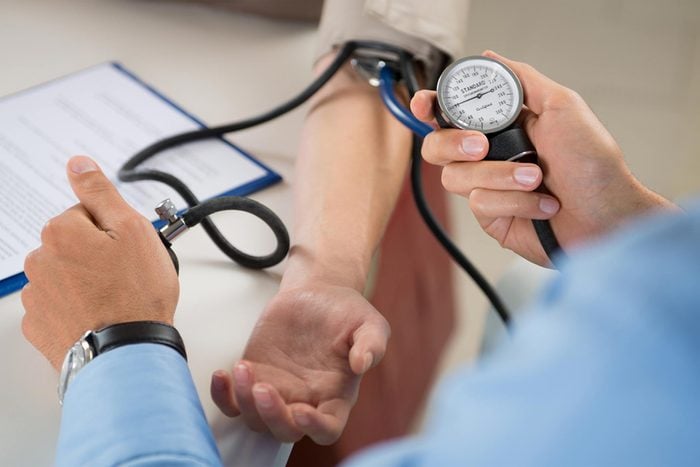America really does run on coffee
There are statistics to prove it. In fact, 54 percent of Americans over the age of 18 drink an average of 3.1 (8 oz) cups per day; the equivalent to 40 billion dollars spent solely on the ever-so-popular cup o’ Joe. With over half of the American adult population sharing the same admiration for good ol’ java, what’s happening inside our bodies if we’re drinking it every single day? Fortunately, it seems that drinking coffee is actually pretty healthy.

You might decrease your chances of developing cancer and other diseases
Since the discovery of the coffee plant, which is said to have originated in Ethiopia when a goat herder noticed his goats’ increased energy levels after they accidentally consumed the unknown berries, science has made great advances in the coffee world. For starters, the average American gets most of their antioxidants from coffee (with New York in the lead drinking almost seven times as much as the rest of the United States). With this in mind, by drinking black coffee every day, you are actually decreasing your chances of developing certain diseases. Here’s how coffee can protect your brain from dementia.
According to Beth Witherspoon, registered dietitian consultant for Community Coffee Company, “Moderate coffee consumption (3-5 cups daily) may be linked to decreased mortality from all causes, reduced risk of developing type 2 diabetes, and decreased risk of Parkinson’s disease, dementia, liver cirrhosis, and certain cancers, including liver and endometrium.” Experts have even referred to coffee as a “miracle drug,” due to its miraculous ability to prevent such diseases. “Basically it helps you live longer,” says Janet Rich Pittman, Dementia Prevention Specialist and Senior Health Adviser, known as The Brain Nerd. Experts make note, however, that coffee’s benefits are best attained with black caffeinated coffee. “For the antioxidants to work…you’ve got to give up your cream and sugar,” says Pittman. (If you can’t, here’s a healthy homemade creamer recipe you should try.)

Your overall mood might improve
In addition to preventing diseases, coffee’s caffeine content is directly correlated with your brain. These effects are especially seen at low levels of consumption (about 75 mg). According to Witherspoon, “Caffeine has been associated with positive actions on the brain, including improved mental alertness and attention, help with concentration, and improved mood.” On the note of an improved mood and, ultimately, a decrease in depression, according to the AARP, “Coffee cuts suicide risk. A 2013 study by Harvard’s School of Public Health found that those who drank two to three cups of caffeinated coffee a day cut their suicide risk by 45 percent—possibly because caffeine’s stimulant effect helps boost people’s moods.” Learn more about how coffee can make you less depressed.

It might enhance memory retention
While caffeine’s positive effect on alertness, attention, concentration, and mood is not such a surprise, its ability to enhance memory retention is based on a fairly new study. According to the journal Nature Neuroscience, “Caffeine enhanced performance 24 hours after administration…We conclude that caffeine enhanced consolidation of long-term memories in humans.” It is important to note that more caffeine is not necessarily better nor will it always prove to have a positive impact on productivity. On the flip side, here’s how quitting coffee affects your body.

It might help you become a better athlete
Coffee-loving athletes: you’re in luck. As it turns out, athletes benefit from both mental and physical properties derived from coffee. According to Witherspoon, “The all-natural caffeine in coffee has been associated with improved physical performance, especially in aerobic or endurance exercise. The amount of caffeine recommended for performance improvement is 2-6 milligrams of caffeine per kilogram of body weight (1kg = 2.2lbs). That’s about 1 to 4 (8 oz.) cups of regular brewed coffee for someone weighing 150 pounds.” Ultimately, caffeine may heighten performance during both prolonged and short-term workouts. Caffeine also reacts with receptors in the brain to “turn off” the part that recognizes adenosine, the chemical that causes a tired sensation. In that sense, there is a decrease in feelings of fatigue as well as pain. Caffeine’s ability to increase concentration and alertness also aides in a successful workout. Learn how healthy each type of coffee is to find the brew that’s best for you.

It might negatively affect your daily routine if consumed in excess
Now for the downsides. First, if an excess of coffee is consumed, some individuals may experience negative side effects, such as anxiety, panic, restless sleep, insomnia, and caffeine dependence. According to the American Heart Association, “Caffeine-habituated individuals can experience ‘caffeine withdrawal’ 12–24 hours after the last dose of caffeine. It resolves within 24–48 hours. The most prominent symptom is headache.” As with overdoing anything, fatality is also a possibility. Studies also show that a lethal dose of caffeine consumed within one day is 100 (8 oz) cups; this may vary from person to person due to it being metabolized differently for everybody. Find out how much caffeine is in Death Wish Coffee.

It might raise your cholesterol levels (depending upon how you brew it)
If cholesterol is something that you are concerned about, you may also want to double-check how your coffee is being brewed. If you use a French press, a percolator, or prefer to drink espresso, then your coffee consists of a significantly higher amount of cafestol than if you use paper filtered or instant coffee, which causes the body’s low-density lipoprotein (LDL) cholesterol levels to rise. The reasoning for this is the filter’s ability to separate the coffee from its cholesterol-increasing oils, called terpenes. (Espresso vs. coffee: learn which one is better for you.)

Your blood pressure might increase—but there are no negative long-term effects
Lastly, coffee can cause an increase in blood pressure. Typically, this increase is short, temporary, and will result in no negative effects in the long-run. According to dietvsdisease.org, “Major dietary factors linked to high blood pressure and heart disease…typically contribute to stiffness of the blood vessels…Regular coffee consumption, however, was observed to have no such harmful influence on blood vessels.” Don’t miss everything you should know about coffee and high blood pressure.